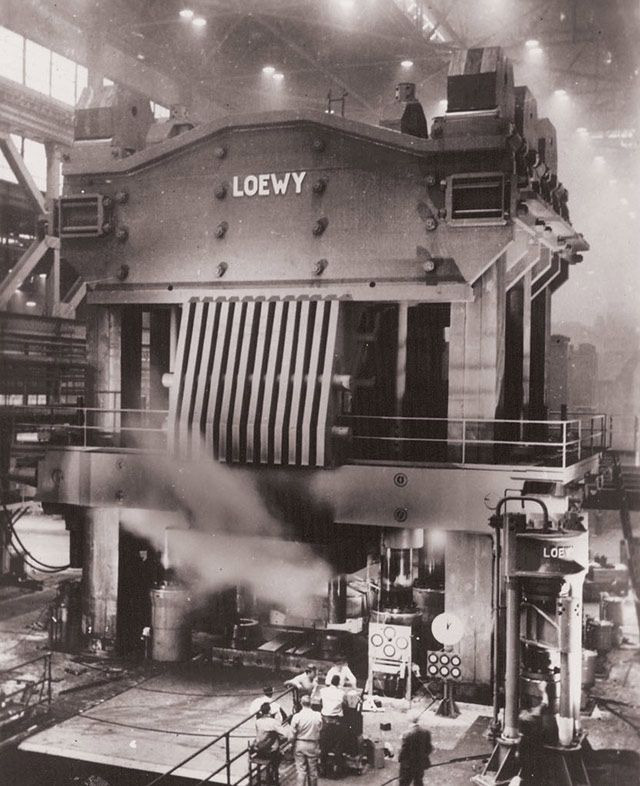
The Loewy Family Foundation is a longtime supporter of Lehigh research, first through the Institute for Metal Forming and now through the recently-dedicated Loewy Institute.
The Loewy Institute is named after a prominent Jewish family that fled Nazi Germany in the 1930s. Once established in the U.S., they contributed mightily to the Allied victory in World War II, transformed the aerospace industry, and shaped much of modern manufacturing.
Designers of massive tools, mills, and presses, Ludwig (1887-1942) and Erwin (1897-1959) Loewy’s imprint on modern life is everywhere. Their expertise transformed commercial and military technology, and their legacy made possible some of the 20th century’s greatest feats of industrial and technological progress.
- After the family’s escape through Western Europe and England, the Loewy-Hydropress company was established in the U.S. in 1940. The firm quickly ignited the American industrial response to French and British war efforts, and soon bolstered direct U.S. involvement.
- At the outbreak of war, Erwin lobbied the Advisory Committee to the President for National Defense to mobilize the U.S. aircraft industry by building 100 huge extrusion presses. By 1943, the number of Loewy presses supporting the effort far exceeded the initial estimate.
- Erwin was active in helping German Jewish engineers emigrate pre- and post-war. His team helped develop the first motion simulator for the Polaris Missile, as well as the launch pad for the Vanguard Rocket.
- The Loewy-Hydropress massive 50,000-ton machine "Major" (shown here), was integral to the development of iconic craft such as the B-52 and the Boeing 707. Still in operation, it has fabricated parts for virtually every airplane in the skies today.

